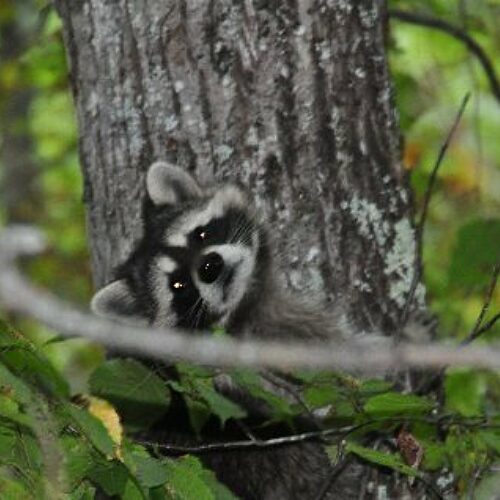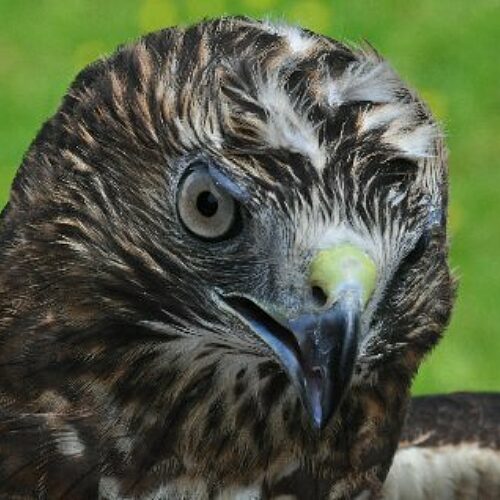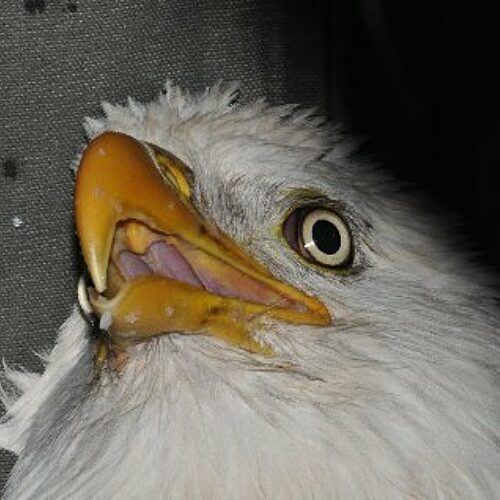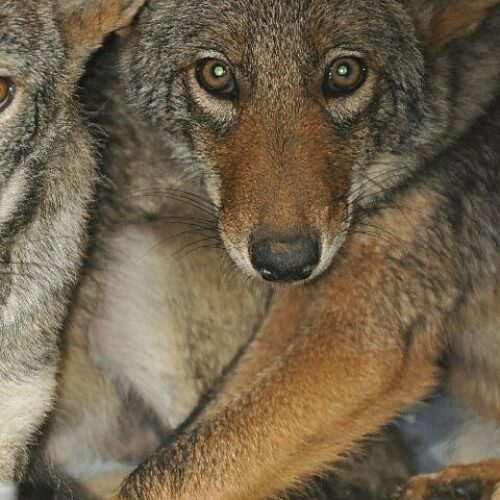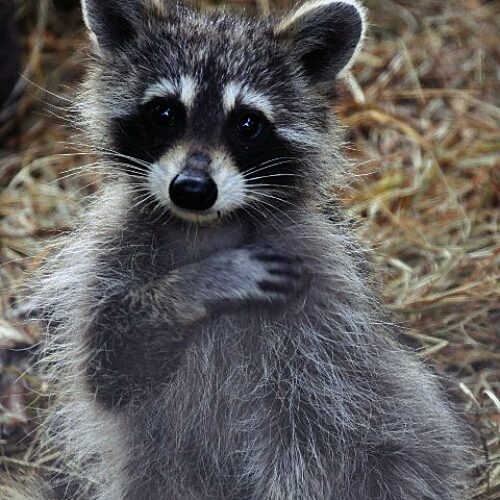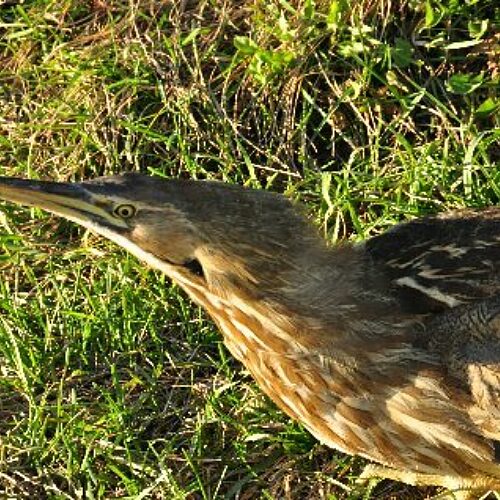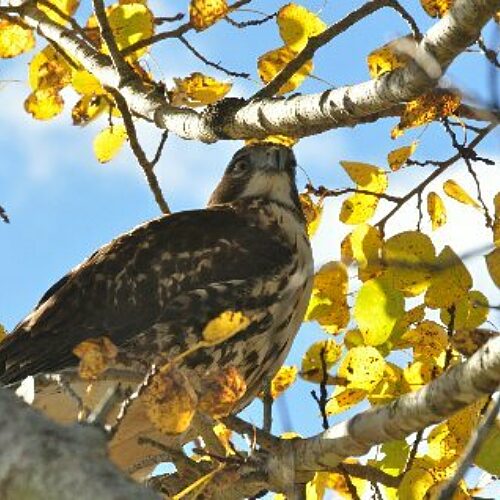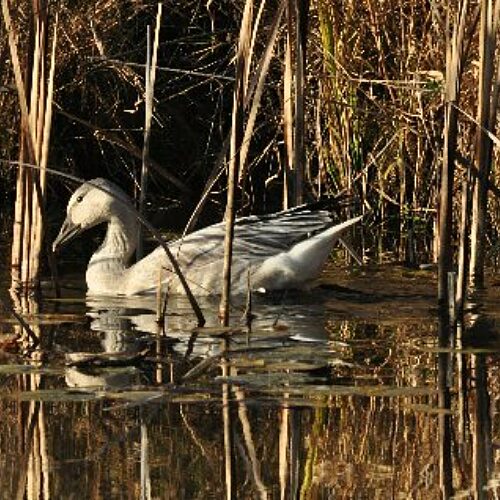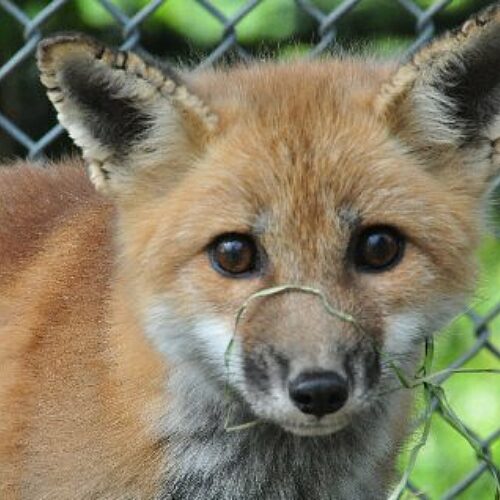Shakespeare sat high above the bookshelves at the Barnes and Noble in Saratoga Springs, indifferent to the crowds as he turned his head around, and around, and around … because, you see, Shakespeare is a barred owl.
As you can imagine, Shakespeare was drawing a lot of attention as wildlife rehabilitator Linda Brown talked about her avocation. Linda has been a rehabilitator for about seven years, starting when she had unexpected leisure between jobs. (Her first clients were squirrels.) Since then, she has earned state and federal licenses to rehabilitate most mammals and birds. Over the years Linda and her husband Eric have helped save the lives of many birds including owls (for which she has a particular affection), great blue herons, American eagles, and Canada geese.
Linda said that rehabilitators tend to specialize. Among the mammals, Linda particularly enjoys the skunks – they have quite the personality, she says. There are animals best left to the others’ care. For instance, she leaves the bats to someone else!
While nurturing an animal back to health can be rewarding, it is not without its heartaches. Some animals are quite susceptible to death from the stress of the rescue alone. For example, only a few rehabilitators seem to be able to keep baby rabbits alive. Although fawns can usually be rehabilitated, adult deer almost always succumb. Sometimes animals, like Shakespeare, are too impacted by trauma to return to the wild, yet they can lead useful lives as teaching exhibits.
Linda and Eric will be providing a workshop about wildlife rehabilitation at Landis this spring to share the rigors of rehabilitation and introduce Shakespeare and perhaps other rescued creatures. They will increase our awareness of how our activities affect wildlife. A great many animals need rehabilitation as a direct result of human behavior. Routinely animals are treated for heads stuck in cans and jars, which are irresistible to a hungry animal. Linda described rescuing a great horned owl trapped by fishing line and hanging upside down from a tree branch over a creek. While we are offering the workshop free of charge; we strongly encourage participants to make a donation to North Country Wild Care, the association of rehabilitators to which Linda and Eric belong. For more information, or to register, call us at (518) 875‑6935 or email info@landisarboretum.org. To learn more about North Country Wild Care, visit their website at www.northcountrywildcare.org. We hope to see you at the workshop!
Pictured below are some of the animals Linda and Eric have rehabilitated, all captured by Eric’s lens.
Click Tap to view full size

